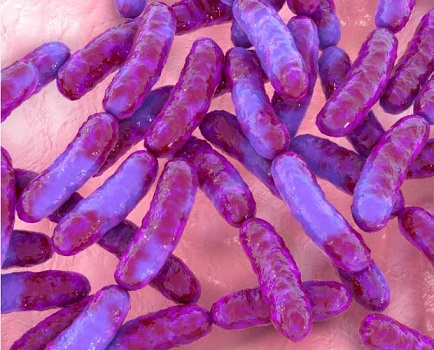Nikhil Prasad Fact checked by:Thailand Medical News Team Jul 16, 2024 9 months, 1 week, 2 days, 21 hours, 39 minutes ago
Gastroenterology Updates: A groundbreaking study from researchers at Penn State Milton S. Hershey Medical Center-USA and the University of Nebraska Medical Center-USA has revealed how the probiotic bacterium Lactobacillus acidophilus can protect the intestines from inflammation. This
Gastroenterology Updates report delves into how this discovery could pave the way for safer and more effective treatments for inflammatory bowel disease (IBD).
 Probiotic Lactobacillus acidophilus protects the intestines from inflammation
The Problem with Current IBD Treatments
Probiotic Lactobacillus acidophilus protects the intestines from inflammation
The Problem with Current IBD Treatments
Inflammatory bowel disease, which includes Crohn’s disease and ulcerative colitis, is a chronic condition marked by inflammation of the gastrointestinal tract. The disease affects millions of people worldwide and is notoriously difficult to manage. The current standard of care involves using anti-inflammatory drugs and biologics that target tumor necrosis factor-alpha (TNF-α), a key player in inflammation. However, these treatments come with significant side effects and do not work for everyone.
A Safer Alternative: Probiotics
The study identifies a safer alternative for treating IBD. Probiotics, which are beneficial bacteria naturally present in the gut, offer a safer option. Among them, Lactobacillus acidophilus (LA) has been extensively used due to its wide-ranging health benefits. A specific strain, LA1, has shown potential in strengthening the intestinal barrier, which is often compromised in IBD.
Understanding the Study
The study aimed to uncover how LA1 works at the molecular level to protect the intestinal barrier. Using cell cultures and animal models, they investigated how LA1 affects the tight junctions between intestinal epithelial cells. Tight junctions are crucial for maintaining the integrity of the intestinal barrier, preventing harmful substances from leaking into the bloodstream.
Key Findings
-Barrier Protection: LA1 was found to prevent TNF-α from increasing the permeability of intestinal epithelial cells. When TNF-α disrupts these tight junctions, it allows bacteria and toxins to penetrate the gut lining, leading to inflammation. LA1 effectively blocked this process.
-Inhibition of NF-κB Activation: TNF-α usually activates a protein complex called NF-κB, which then triggers inflammation. The researchers discovered that LA1 inhibits this activation. Specifically, LA1 prevents the degradation of IκB-α, a protein that keeps NF-κB inactive under normal conditions. By maintaining IκB-α levels, LA1 stops NF-κB from moving into the cell nucleus and initiating the inflammatory response.
-Role of TLR-2 and PI3K: The study also highlighted the involvement of Toll-like receptor 2 (TLR-2) and phosphatidylinositol 3-kin
ase (PI3K) in LA1’s protective mechanism. While TLR-2 is generally known to activate NF-κB in immune cells, in intestinal cells, it appears to have the opposite effect when activated by LA1. PI3K, activated by TLR-2, plays a crucial role in this inhibition, particularly by preventing the activation of IKK-α, an enzyme necessary for NF-κB activation.
-Effectiveness in Animal Models: The protective effects of LA1 were confirmed in mouse models. Mice treated with LA1 showed significantly lower intestinal permeability and inflammation after being exposed to TNF-α, compared to untreated mice.
Implications for IBD Treatment
These findings are significant because they reveal a dual action of LA1: promoting a healthy gut barrier while also dampening inflammation. This dual action is particularly important for developing new IBD treatments that are both effective and safe.
Future Directions
The study opens several avenues for future research. One key area is to understand why LA1, but not other strains of Lactobacillus acidophilus, has these protective effects. Understanding this could help in formulating more targeted probiotic therapies. Additionally, clinical trials are needed to confirm these benefits in humans and to determine the most effective doses.
Conclusion
The discovery that Lactobacillus acidophilus strain LA1 can protect the intestinal barrier and prevent inflammation through a unique mechanism involving TLR-2 and PI3K is a promising step forward in IBD treatment. This probiotic could potentially offer a safer, more effective alternative to current therapies.
The study findings were published in the peer-reviewed journal: Frontiers in Immunology.
https://www.frontiersin.org/journals/immunology/articles/10.3389/fimmu.2024.1348010/full
For the latest
Gastroenterology Updates, keep on logging to Thailand Medical News.
Read Also:
https://www.thailandmedical.news/news/the-probiotic-lacticaseibacillus-casei-ib1-can-help-combat-inflammatory-bowel-disease
https://www.thailandmedical.news/news/probiotics-show-promise-for-kids-with-irritable-bowel-syndrome
